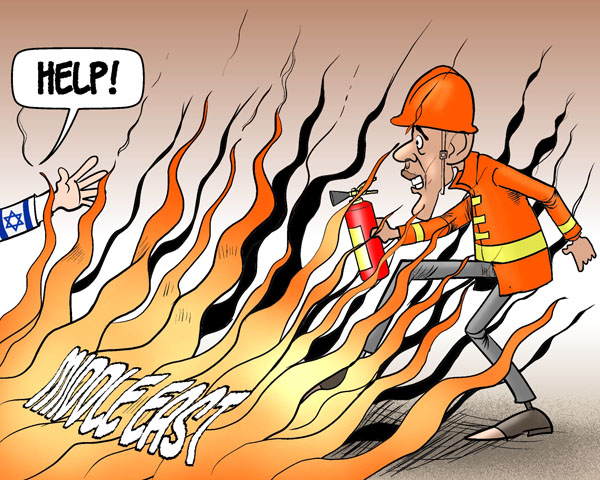China and changing Middle East politics
- By Mohsen Shariatinia and Ehsan Razani
 0 Comment(s)
0 Comment(s) Print
Print E-mail China.org.cn, November 11, 2015
E-mail China.org.cn, November 11, 2015
|
|
|
[By Jiao Haiyang/China.org.cn] |
Today, the Middle East is undergoing a monumental geopolitical transformation. How do all these developments affect China and to what extent does it have the ability to shape them?
Undoubtedly, to a great extent, what is happening has been provoked by the change in the U.S. role in the region. Due to soaring costs that dwarf its benefits, America's Middle East strategy of "deep engagement" has gradually been replaced by an "offshore balancing" one.
The U.S policy of deep engagement has been responsible for different crises in today's Middle East. Now that these are growing at an unprecedented rate, the United States has begun to pursue a disengagement policy that has created a kind of strategic ambiguity surrounding regional politics.
Needless to say, the continuance of such an ambiguity, of great importance to the PRC in view of its energy security needs, could bring negative impact on China's national security.
With this in mind, the question of who is the most likely candidate to play the leading role in post-American Middle East politics has turned out to be increasingly important. Under these circumstances, there are those who expect China to play a more proactive role as a key stakeholder in the region.
While it may well be essential for China to play a more active role, it would be difficult for it to do so. There are a lot of challenges in the region that cannot easily be overcome. Facing the challenges involved needs not only deep understanding of the complex issues in the Middle East, but also huge financial resources.
This is evident from the fact that, for years, Washington pursued very costly foreign policy initiatives in the Middle East without ever having an accurate understanding of its politics.
Moreover, the dangerous polarization in regional politics has resulted in a much more tension-filled Middle East. In the last few decades, the U.S. attempted to ignore the role of some regional actors or to actively enforce an isolation policy against them.
The latest developments, however, have demonstrated the ineffectiveness of the U.S. containment strategy leading to a number of disastrous consequences for the region's peace and security. Hence, to what extent China would be able to gain a deeper understanding of complex Middle East politics and whether China has the ability to develop collaborative initiatives for regional stability, will be determining factors in the success of any role it seeks to play.
The rise of Salafi jihadist extremist militancy in the Middle East can be seen as the other major source of change. Based on the experiences, military solutions cannot stop violence in the Middle East and bring about lasting peace. In other words, insurgency and terrorist violence are, basically, rooted in economic and social inequality and the incompetence of central governments.







Go to Forum >>0 Comment(s)